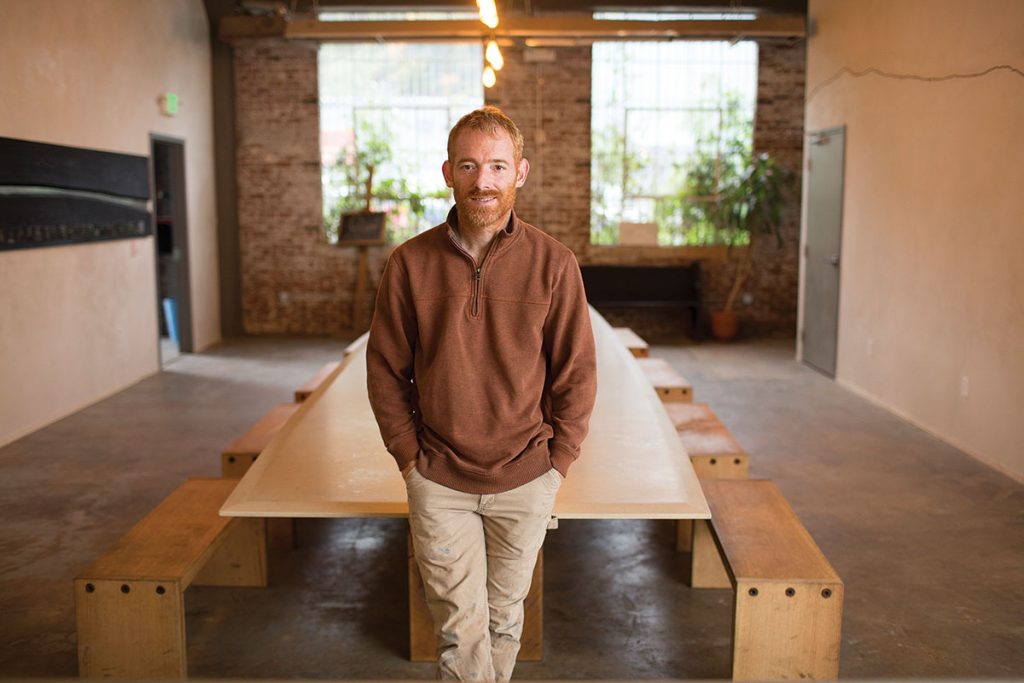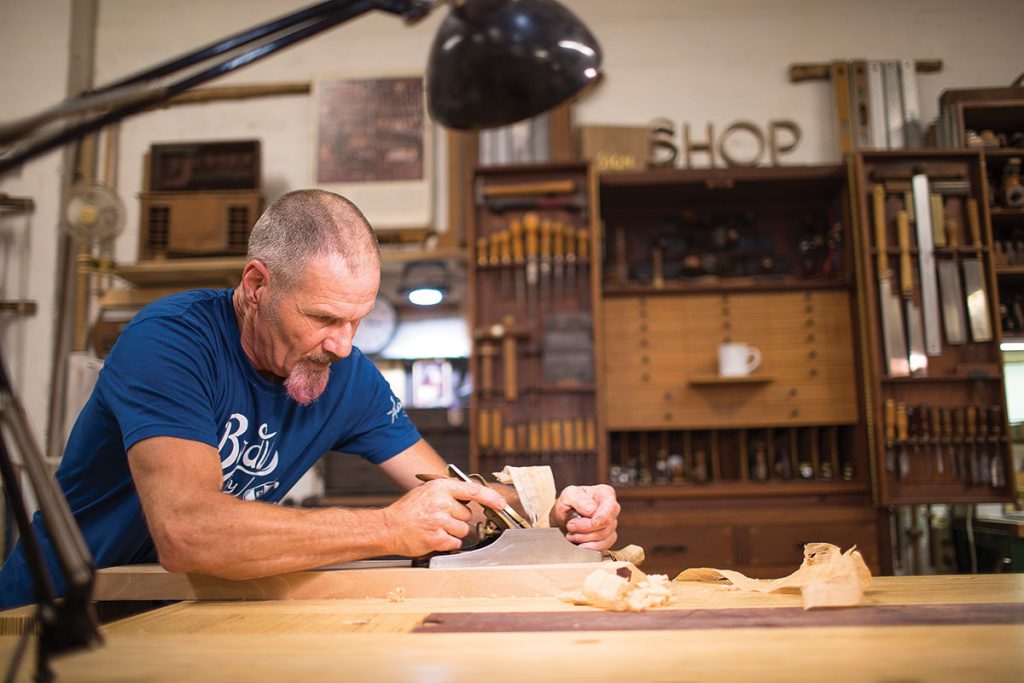
Photo by Matt Rose
Jeremy French got sober in 1995, and his first mentor emphasized the value of the creative process on that journey. So he started working for a landscaper in 1996 before launching his own business in 1998 and opening an architectural-concrete studio in 2003. He’d begun supporting others in their recovery process back in 1995, and his work with recovering addicts, he says, “has become more central to my life as each year passes.” French’s organization Making Whole is uniquely based on learning lessons from craftsmanship through apprenticeship. The recovery program now has a world-class downtown facility for creating studio-quality furniture and building various architectural elements in metal, wood, and artisan concrete.
How does apprenticeship play a role in recovery?
You are assisting someone in the work while they do it. You’re learning to trust them and observe how they think through problems. You are taking an Old World craftsmanship process from the past. You are applying it in the present, and making something that connects to the future.

Photo by Matt Rose
Connecting to the whole circle of time?
Yes. Say you are using lessons from the past and building a dining table in the present. Someone will use it and eat differently from here on out. It will meaningfully change how they socially interact at mealtime. One of the first things we built was a writing desk. The details of the design now affect how that writer shows up to his life every day.
The approach sounds very holistic.
There is the potential to become wholly engaged in what you’re doing. When you are in that space, your mind is geared to learn.

Photo by Matt Rose

You’re more susceptible to making a positive change?
Yes. And we can put someone into the practice of repetitively facing the real risk of failure. Sometimes what you make is beautiful; sometimes it’s trash. The artist takes risks despite evidence of the possibility of failure.
How does facing potential failure lead to recovery success?
How you interface with failure is a huge part of being a problem solver. Once that process becomes familiar in daily life, it changes how you think, and recovery from addiction is more accessible.
Making Whole, 745 Biltmore Ave., Asheville. To learn more, e-mail Jeremy French (jeremy@makingwhole.com) and request a booklet of information, or visit the website: makingwhole.com. (Making Whole is also on Instagram and Facebook.)